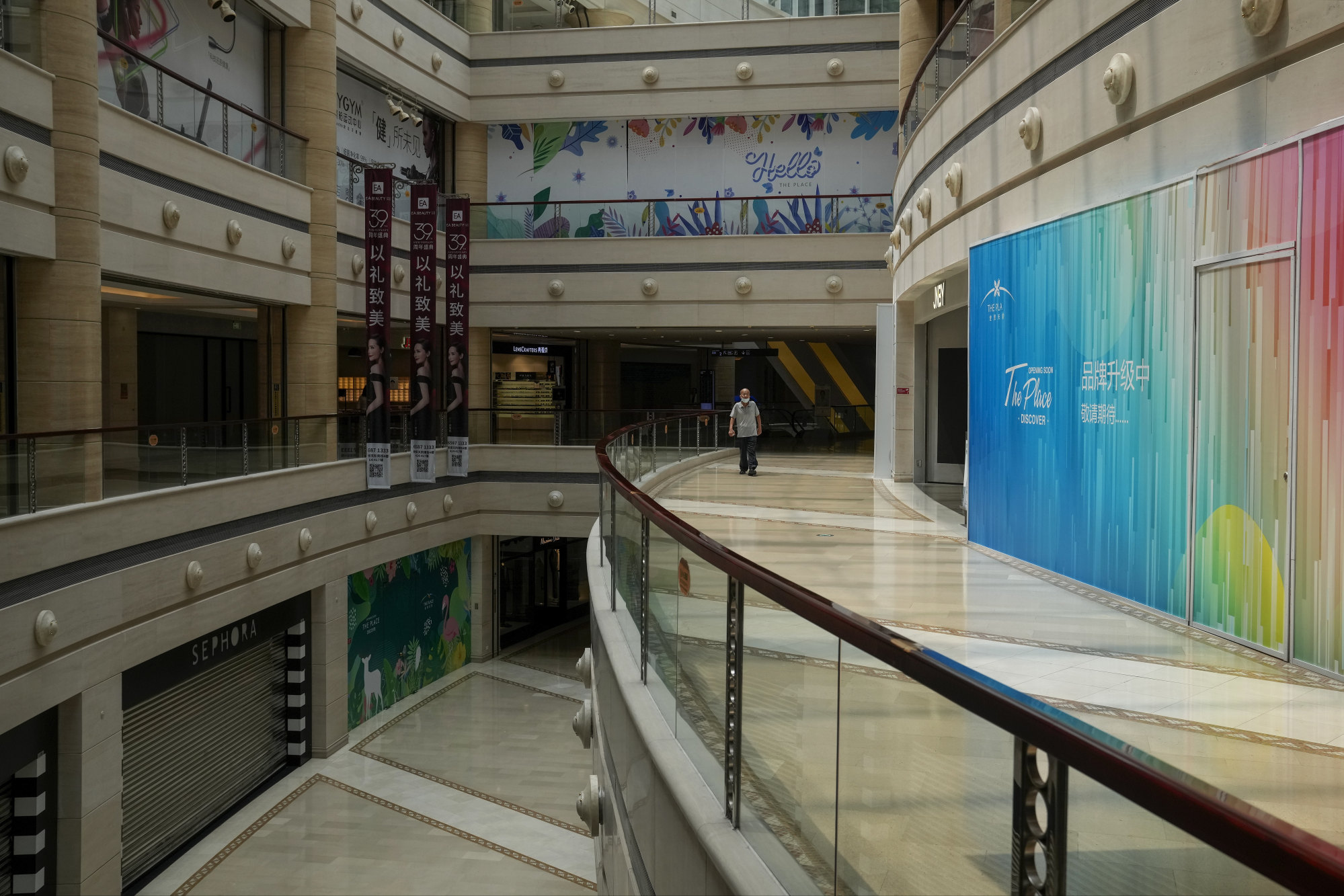Chinese consumers are adjusting their spending habits to account for the country’s less-than optimistic economic outlook, according to global advisory firm PwC.
The crisis in China’s real estate sector and high youth unemployment are among concerns weighing on consumer spending, it said in a report published on Tuesday.
“Although the degree of financial concern felt by Chinese consumers is less acute than global counterparts, consumers have been holding back on non-essential spending,” said Michael Cheng, PwC Asia-Pacific consumer markets leader.
Do you have questions about the biggest topics and trends from around the world? Get the answers with SCMP Knowledge, our new platform of curated content with explainers, FAQs, analyses and infographics brought to you by our award-winning team.
“The recent weakness of the yuan together with poor real estate and equity performance, coupled with a record-high youth unemployment rate, has dampened consumer spending. Consumers feel the pinch of financial uncertainty, which has further undermined consumer confidence and heightened risk of deflation.”

The PwC report is significant because Beijing has been trying to encourage domestic consumption as a way of driving and growing its economy.
The report, which has been published twice a year since 2021, surveyed about 9,000 consumers in 25 countries. It found reduced consumption needs and general uncertainty about the future have led to more savvy spending in China. Consumers are less likely to make impulse purchases and are focusing on quality and value as well as promotions, the report said.
Chinese consumers wary of parting with hard-earned money amid slowdown: study
An area that is likely to see more spending is travel, the report showed, with Chinese consumers willing to spend more on their itineraries than any other nationality polled. About 62 per cent of the Chinese consumers surveyed said they would increase their spending on travel related activities slightly or significantly, compared to a global average of 40 per cent.
More than half of the Chinese respondents said they were extremely likely to travel internationally in the second half of the year, compared to a global average of 44 per cent.
But a sense of caution prevails here too. A separate report published by Economist Intelligence Unit on Tuesday said the number of international flights in operation during the summer holidays in China was only half of the levels seen in 2019. The country’s tally of outbound tourists is not anticipated to exceed pre-pandemic levels until 2025.

At home, consumption in the first half of the year was driven mainly by catering services, luxury goods and apparel and footwear. Spending on catering services increased by 21.4 per cent year on year, while luxury goods increased by 17.5 per cent, and apparel and footwear increased by 12.8 per cent.
Chinese consumers are being smarter about where they buy their essential items, by using WeChat groups and live-streaming promotions to get the best deals.
One of the most significant changes in consumer behaviour has been a shift towards more pragmatic and rational decision-making, the PwC report said. Consumers are caring more about the price to value and quality, said Nicole Sun, PwC China M&A advisory partner.
“On the other hand, other consumers purchase luxury goods to make themselves feel good after Covid-19,” Sun added. China’s ultra-rich consumers are still spending a large portion of their disposable income on luxury brands.
Mainland Chinese tourists’ spending habits in Hong Kong have also changed, with more visitors from the mainland opting to spend on cultural activities now, said Cheng.
The launch of duty-free shopping in Hainan has significantly boosted tourism to the island province at the cost of Hong Kong. Promotions on luxury goods on the island combined with a strengthening Hong Kong dollar have also hurt the city’s price advantage for high-end goods.
Alibaba chief strategist says small business ‘more important’ in slowing economy
China has been trying to get mainland consumers to buy luxury goods domestically, which has been taking a toll on Hong Kong’s luxury retailers, Cheng said. “But while there is still a price advantage in Hong Kong – whether its 5, 10 or 15 per cent – the city will always have an advantage.”
Luxury brands are still “ready to develop their position in the city and expand their presence”, Cheng added.
Hong Kong should diversify by attracting the emerging middle classes in Southeast Asia, as visits and spending by mainland tourists, the key driver of Hong Kong’s retail sales, have not yet bounced back to pre-pandemic levels as expected, Cheng said.
China’s Gen-Z consumers prep for bout of ‘revenge’ spending on personal care
By the end of the year, mainland tourist arrivals should rebound to about 60 per cent of pre-Covid-19 levels, reaching an expected 25 million visitors over the year, according to PwC.
Meanwhile, Hong Kong’s retail sales grew by 20.7 per cent in the first half of 2023, driven by the government’s consumption voucher schemes. PwC, however, expected the second half to be lacklustre, with retail sales for the total year forecast to grow by 17 per cent to HK$408 billion (US$52.05 billion).
As Hong Kong residents too opt to spend more on travel, there will be less spending at domestic retailers.
More from South China Morning Post:
- Doing it in style: luxury US$32,000 Chinese after-birth care booms in Australia taking post-partum replenishment of mothers to new level
- Inside Chinese shoppers’ massive appetite for luxury goods: from spending US$131 billion by 2027 and consuming domestically including Hong Kong, Macau and Hainan, to loving brands like Prada and Gucci
- Shanghai luxury home prices under pressure as affluent worry about economy, with some buyers asking for discounts of 15 pc
- Hong Kong’s retail sector revives: top landlords see positive signs from shop tenants, while office market lags
- Hong Kong retail sales show 19.6 per cent rise to HK$33.1 billion in June, boosted by tourism and consumer demand
For the latest news from the South China Morning Post download our mobile app. Copyright 2023.





